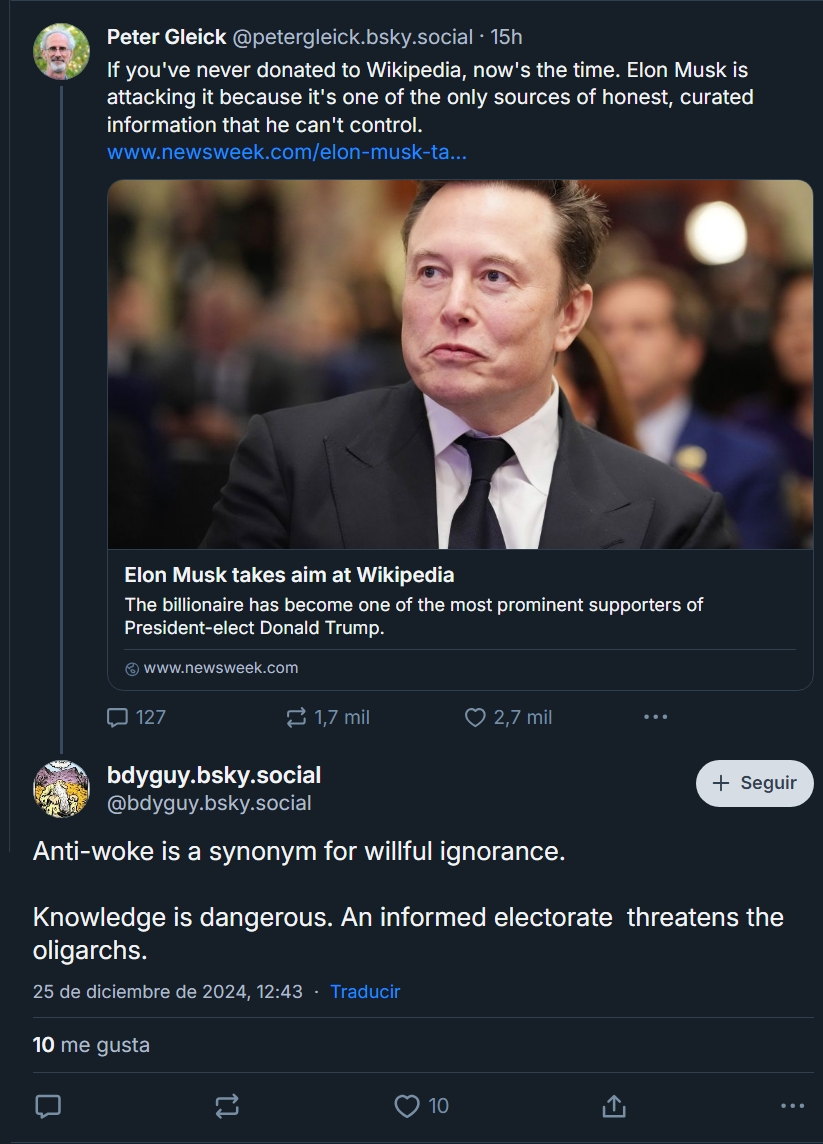this post was submitted on 25 Dec 2024
750 points (97.2% liked)
Bluesky
416 readers
7 users here now
People skeeting stuff.
Bluesky Social is a microblogging social platform being developed in conjunction with the decentralized AT Protocol. Previously invite-only, the flagship Beta app went public in February 2024. All are welcome!
founded 2 months ago
MODERATORS
you are viewing a single comment's thread
view the rest of the comments
view the rest of the comments

Because directly citing Wikipedia isn't how you're supposed to use it in that sort of setting. What Wikipedia is best-suited for in actual research is being a first stop:
I would even say that professionally written encyclopedias like Britannica aren't really a good "end source" that you should be citing. You absolutely can use Wikipedia for homework, but you still need to have some basic understanding of how to evaluate the sources that Wikipedia uses. Essentially, we ideally give you a head-start, not a finish line.
Speaking as one of the old folks who went through school before the World Wide Web existed, you were never allowed to cite the old-style, printed and bound encyclopedias.
?! We were practically required to in the 80s. Where where you?
You must have had shittier teachers. We had to site sources, and none could be encyclopedias.